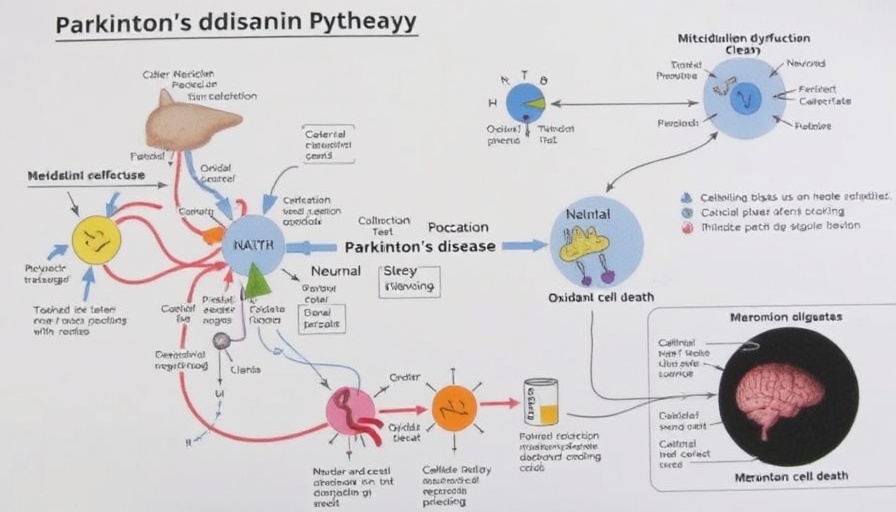
Revolutionary Findings in Parkinson's Disease Research
Recent research has unveiled a significant metabolic driver of Parkinson's disease, namely the enzyme ACLY (ATP-citrate lyase). Understanding this pathway opens new avenues for treatment, as researchers have demonstrated that inhibiting ACLY can restore normal cellular functions impacted by the disease. This study, led by Dr. Sung Min Son at the UK Dementia Research Institute, uncovered how ACLY becomes hyperactivated in the presence of toxic alpha-synuclein clumps, leading to disrupted autophagy processes in brain cells.
The Role of Alpha-Synuclein in Parkinson's Disease
Parkinson's disease is characterized by the accumulation of alpha-synuclein proteins in clumps known as Lewy bodies within nerve cells. Under normal circumstances, cells utilize autophagy to break down and recycle damaged or unneeded proteins, thereby maintaining cellular health. However, the findings suggest that the dysfunctional autophagy in Parkinson's—exacerbated by hyperactive ACLY—prevents the effective removal of toxic alpha-synuclein, ultimately leading to cellular stress and death.
Potential Therapeutics: Inhibiting ACLY
The study's results are promising; blocking ACLY has been shown to enhance the autophagic process, reducing both cellular stress and toxic protein accumulation in experimental models. The application of existing compounds that inhibit ACLY, such as hydroxycitrate, underscores the therapeutic potential of this pathway. With several interventions previously evaluated for other conditions, repurposing these drugs could yield new hope for Parkinson's treatment.
Impact on Health and Wellness: A Community Perspective
For individuals affected by Parkinson's disease and their loved ones, this research represents a beacon of hope in the ongoing battle against neurodegenerative conditions. At community health and wellness centers, understanding these breakthroughs is essential for informed discussions around caregiving, support resources, and wellness strategies. Tailored community health and wellness events can facilitate awareness and education about the changing landscape in Parkinson's treatment approaches.
Looking Forward: Future Predictions and Trends
The landscape of Parkinson's treatment is poised for transformation. As the understanding of metabolic drivers such as ACLY deepens, the potential for novel therapeutic strategies increases. Emerging research may even identify new biomarkers that correlate with treatment responses, enabling personalized medicine strategies that optimize patient outcomes. Moreover, public awareness of Parkinson's and its metabolic implications may spur increased funding for research and development in this crucial area of health.
Decisions to Make on Health and Wellness
Health and wellness decisions greatly impact the quality of life in individuals with Parkinson's disease. Knowledge of how to maintain optimal health should include insights gained from current studies, such as those concerning ACLY. Incorporating dietary adjustments through natural healthy foods and supplements that support metabolic function can complement ongoing treatments. Engaging with the available local health and wellness businesses and resources can provide community support and educational opportunities.
Conclusion: Take Action for Better Health
As this exciting research progresses, it’s crucial for individuals and communities to stay informed and proactive in discussions about Parkinson's treatment options. By exploring potential therapies and maintaining engagement with the latest health and wellness advancements, patients and caregivers alike can contribute to a future where outcomes for Parkinson's disease are significantly improved. Embrace the community resources available to enhance your understanding and wellness journey today!
 Add Row
Add Row  Add
Add 




 Add Row
Add Row  Add
Add 


Write A Comment